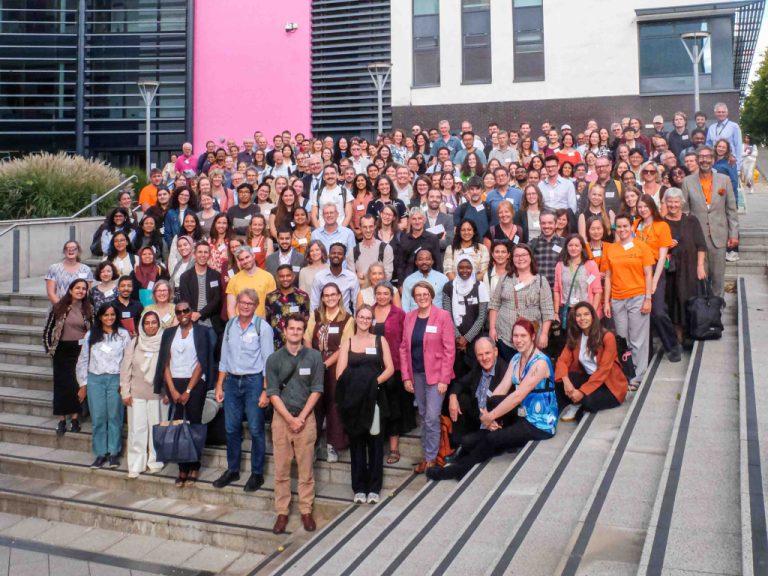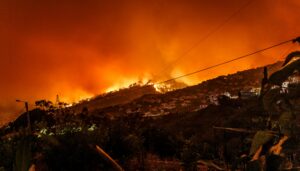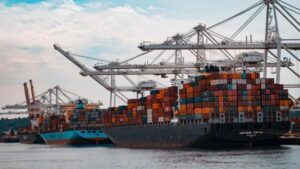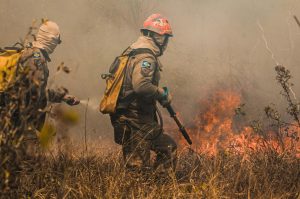These briefing notes were prepared to accompany each session of the Critical Decade for Climate Action Conference, held in September 2025.
The briefing notes summarise the key discussion themes explored during the three-day Critical Decade for Climate Action Conference in 2025.
Download the conference briefing notes
Click on the titles to below to read or print the session write-up as a PDF. More will be added as they are published.
| Briefing notes (PDF) | Session details | Authors |
|---|---|---|
| Decarbonising the UK: Reflections from 2005 to 2025 | Session 2: Twenty years later and halfway through our critical decade for climate action, the team at Tyndall Centre Manchester has reviewed its seminal ‘Decarbonising the UK’ report, addressing reflections and constructive lessons, and if/how these scenarios have played out in the ensuing years. Can the 2005 approach be built upon to address the worsening climate crisis faced in 2025? | Diarmaid Clery (Rapporteur), Gaurav Gharde, Kevin Anderson, Catherine Mitchell, Sandra Bogelein, Sarah Mander, Alice Larkin (Chair) |
| Beyond integrated assessments to understand climate impacts | Session 3a: Pathways toward future energy systems and land use are dominated by outputs from Integrated Assessment Models (IAM) within the IPCC process that then frame decisions within global negotiations and at national scales. Yet critiques of IAMs highlight a lack of contextual underpinning and narrow cost-optimisation architecture that underplays social and cultural aspects, and in particular risks undervaluing parameters that shape pathways in the global south. This session was about approaches that go beyond, above and around IAM frameworks, to explore how to improve decision making on energy systems and land use change. | Jess Chapman (Rapporteur), University of East Anglia; William Lamb, Potsdam Institute for Climate Impact Research; Clair Gough, University of Manchester; Gaurav Gharde, University of Manchester; Ruth Larbey, University of East Anglia; Naomi Vaughan (Chair), University of East Anglia |
| Climate services for our critical decade for climate action | Session 5: The Director of the German Climate Service Center (GERICS) addressed the emergent and urgent transitions in the 2020s; what are the barriers and enablers to delivering climate action at scale; and what is needed for the transition to Climate Services? | Jack Heslop, University of East Anglia (Rapporteur); Daniela Jacob, Climate Service Center Germany; Rachel Warren, University of East Anglia (Chair) |
| Identifying and evaluating climate change adaptation action | Session 6b: This session focused on a range of methods and approaches that have been applied to identify and measure climate change adaptation, and the benefits and insights of such evaluation. It is argued that better understanding of implemented adaptation can be invaluable to understand enablers and barriers to action, potential opportunities, gaps in the system, and to support future implementation. Furthermore, advancing such methods and approaches to identify implemented adaptation action effectively and efficiently will be paramount when considering the goals of the Global Adaptation Stocktake. | Ellen McHarg, University of East Anglia (Rapporteur); Katie Jenkins, University of East Anglia; Henry Neufeldt, UNEP; Emma Tompkins, University of Southampton; Helen Adams, King’s College London; Craig Hutton (Chair), University of Southampton |
| Delivering multidimensional wellbeing: Integrating climate action and human health | Session 8c: Climate change exacerbates existing health inequalities and disproportionately affects vulnerable populations. This session explored the specific impacts of climate change on health and wellbeing to identify and address primary research questions in each area. | Rita Issa, University of East Anglia (Rapporteur); Matthew Loxham, University of Southampton; Davide Filingeri, University of Southampton; Mark Chapman, University of Southampton; Mary Barker, University of Southampton (Chair) |
| Irreversible progress in climate policy and technology | Session 10: Climate policy and the technological advances they have triggered are providing new opportunities and constraints. This session offered presentations that identified and discussed the emerging transitions and how they interact with policy and society in ways that can accelerate, or slow down, climate actions. | Amy Russell, University of East Anglia (Rapporteur); Nigel Topping, Ambition Loop; Prof. Charlie Wilson, University of Oxford; Prof. Corinne Le Quéré, University of East Anglia (Chair) |
| Significance of semantics: The importance of language in research, governance and communication of global environmental change | Session 11a:This session explored the significance of semantics in environmental governance, offering examples of where damages have occurred, how they can be avoided, and where better semantics are essential to support and empower intervention, research, and communication in ethical, just, and decolonial ways. | John Aubrey Chirwa, University of East Anglia (Rapporteur); Angela Mae Minas, University of Manchester; George Borrinaga, University of San Carlos, Philippines; James Reed, CIFOR-ICRAF; Mark Tebboth, University of East Anglia; Angela Crack, University of Portsmouth; Rachel Carmenta, University of East Anglia (Chair) |
| Social change to the rescue? Balancing climate urgency with complex social realities | Session 11b: This session critically reflected on: tensions between the urgency of climate mitigation, and the pace at which different forms of social change can be expected to happen; the politics of social change, including issues of fairness and resistance; the methods and tools that might enable meaningful social change; and the implications of these issues for adaptation, including how social change for mitigation and adaptation might be related. | Danni Walters, University of East Anglia (Rapporteur); Tim Braunholtz-Speight, University of Manchester (Co-Chair); Timothy Foxon, University of Sussex; Alfie Gaffney, University of East Anglia; Claire Hoolohan, University of Manchester; Sean Irving, University of East Anglia; Michael Lomotey, University of Southampton; Carly McLachlan, University of Manchester; Katharine Steentjes, Swansea University (Co-Chair); Chantal Sullivan-Thomsett, University of East Anglia; Mark Wilson, university of Bath |
| Wildfires in the context of climate change | Session 11c: Wildfires are becoming more intense, severe, and widespread, increasingly impacting the world’s forests. This session explores cutting-edge research on wildfire trends, including shifts in extent and severity, as well as the key drivers behind these changes. | Natasha Hill (Rapporteur), University of East Anglia; Calum Cunningham, University of Tasmania; Douglas Kelley, UK CEH; Piyush Jain, Canadian Forest Service; Kerryn Little, University of Birmingham; Francesca di Giuseppe, ECMWF; Alice Hsu, Matthew Jones (Chair), University of East Anglia |
| With hindsight and foresight, what needs to be done differently for climate action? Directors reflect on halfway through our critical decade for climate action | Session 12:The Tyndall Centre, founded in 2000, is the first interdisciplinary, multi-University, multi-Research Council Institution, as far as we know. In this session, some senior members discussed what they would have done differently in the context of climate research for policy and our critical decade for climate action, and they highlight some of their top tips for early and mid-career researchers – the people who are the research directors of the future. | Clara Kübler (Rapporteur); Mike Hulme, University of Cambridge; Corinne Le Quéré, University of East Anglia; Kevin Anderson, University of Manchester; Lorraine Whitmarsh, University of Bath; Robert Nicholls (Chair) |
More about the conference and Tyndall Centre
- See the full agenda and outputs of the Critical Decade for Climate Action Conference
- Find out more about who we are and what we do
- Keep an eye on other events from the Tyndall Centre
Conference photo by Mind Lin





